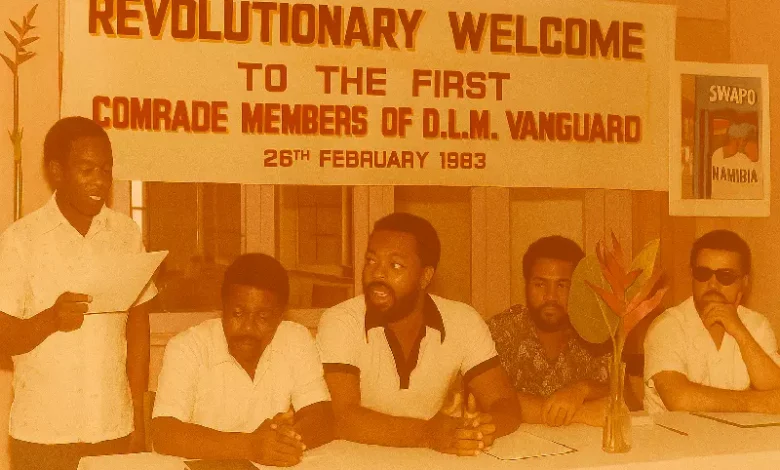Dominica Liberation Movement Alliance (DLMA)

The Dominica Liberation Movement Alliance (DLMA) was a short-lived but historically important political coalition that emerged in Dominica in the late 1970s. Born out of mounting dissatisfaction with the ruling Dominica Labour Party (DLP) and shaped by regional independence struggles, the DLMA brought together several left-leaning organisations committed to reshaping the country’s economic and social systems in the wake of colonialism and underdevelopment. It represented one of Dominica’s first formal political movements to fuse grassroots activism with socialist and nationalist ideals.
Origins and Coalition Structure of the DLMA
The DLMA was not a single party but an alliance formed by multiple political entities and civic organisations. Roosevelt “Rosie” Douglas founded the Popular Independence Committee (PIC), one of the most influential. The PIC advocated national sovereignty and pursued an anti-imperialist, socialist-leaning agenda. Another major component was the People’s Democratic Party (PDP), led by Dr. William “Para” Riviere. This party was rooted in rural and working-class concerns and heavily influenced by the Black Power movement and labour activism.
Other factions included the Dominica Democratic Alliance (DDA), founded by former DLP minister Michael Douglas, which initially functioned as the New Alliance Party, promoting democratic reform and political accountability. Additionally, the Working People’s Vanguard (WPV), led by Bernard Wiltshire, emerged as a splinter group from the PIC, with an even more radical socialist focus, prioritising workers’ rights and economic restructuring.
Though united in their broader critique of the DLP’s leadership, the alliance struggled to maintain cohesion due to ideological differences and strategic disagreements. These tensions would become more visible as the country approached general elections.
The 1980 Elections and Political Role
The DLMA entered the 1980 general elections as an alternative to the ruling DLP and the rising Dominica Freedom Party (DFP) led by Mary Eugenia Charles. However, internal disputes led to major withdrawals from the coalition. The DDA and PIC pulled out of the alliance and supported the short-lived Dominica Democratic Labour Party (DDLP) administration under Oliver Seraphin. This left the PDP and WPV as the core of the remaining DLMA leadership.
Despite their ideological clarity and grassroots connections, the DLMA under Atherton Martin contested the 1980 elections with limited success. The alliance secured approximately 8.42% of the national vote but failed to win any of the 21 seats in the House of Assembly. The DFP swept the election, and Charles became Dominica’s first female Prime Minister. The DLMA’s inability to consolidate votes in any constituency and the fragmentation of its founding organisations contributed to its electoral failure.
Merger, Influence, and Legacy
In 1985, the Dominica Liberation Movement Alliance merged into a broader coalition with the Dominica Labour Party and the United Dominica Labour Party, marking the end of its independent existence. While it ceased functioning as a distinct political force, its ideological influence persisted.
Many of its former members had long and impactful careers in Dominican politics. Roosevelt “Rosie” Douglas became Prime Minister in 2000, albeit for a short term, before his death. Pierre Charles, also aligned with DLMA roots, succeeded him and served until 2004. Their political philosophies, shaped partly by their experience with the DLMA, emphasised social justice, international solidarity, and a developmental state agenda.
The DLMA stands as a significant chapter in Dominica’s political evolution. It illustrated the promise and limits of coalition politics in a small island state, especially during global ideological polarisation and post-independence transformation. Though it never held parliamentary power, the alliance played a critical role in mobilising civic engagement, challenging entrenched structures, and training a generation of leaders who would shape Dominica’s future.




